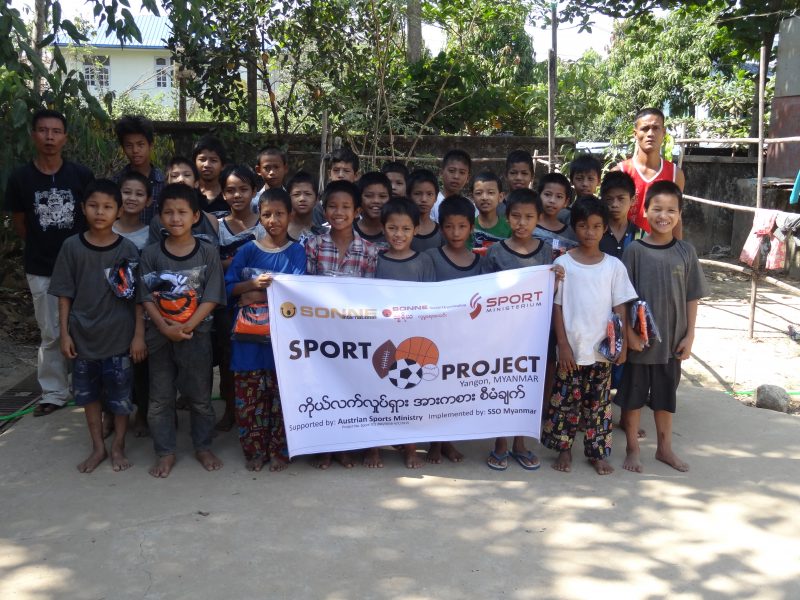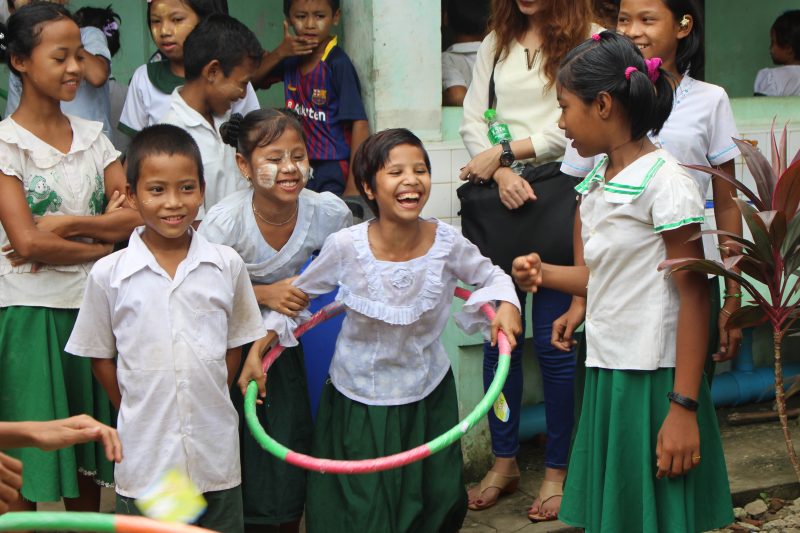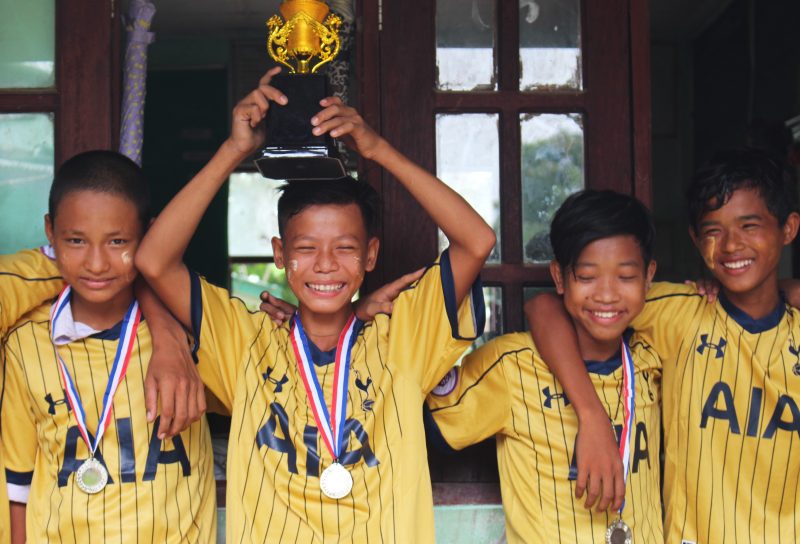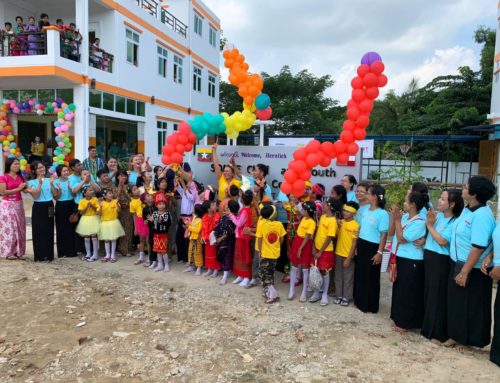On the 30th of July in 2017, SONNE Social Organization, in cooperation with SONNE International, has successfully finished its two-year long sports project for street children with deprived backgrounds in three of its main project sites. Since a lot of children and teenagers suffer under highly unstable and dire living conditions in Myanmar and have no access to formal education, the sad truth is that they give time for sports and physical fitness even less attention than many Burmese already do. Without suffisient resources, space, and assistance, it stands to reason that the aspiration of doing sports like many of us are used to in developed countries has faded into the background. With the generous support of the Austrian ministry of sports however, SONNE has been able to overcome all obstacles presented by the daily hardship: Nearly 900 children took part and have profited from the sports project over the last two years!
 Nearly 900 children participated in the Sports-Project.
Nearly 900 children participated in the Sports-Project.
In Nga Pyaw Kyaun Village, we could provide sports equipment for 470 Primary school students, including sports dresses and shoes, footballs, basketballs, badminton sets, a net for volleyball and cane ball, frisbees etc. 66 children participated in weekly football and cane ball trainings on a leased sports field, with their own football trainer whom we employed. In the Youth Training Centre in Thanlyin, apart from supplying the whole school with much needed sports materials, 44 children also received a two-three month long daily football training session, again with qualified sports teachers. All in all, a total of 352 children were able to partake in these training sessions during the duration of the project. Last but not least, SONNE gave 100 of the poorest and most marginalized children of the Tanaungzing (Magwe) elementary school sports equipment.
 The children enjoy their new sports equipment
The children enjoy their new sports equipment
The results were immediately noticeable: not only did the kids quickly pick up all the rules, with time they also started to show a brilliant sense of sportsmanship and team spirit, which are rare attributes in their conflict-ridden lives. Moreover, they impressed teachers and staff alike with an improved learning spirit and were able to concentrate more easily during lessons. In November of 2016, we even succeeded in holding sports contests in two of the three centres, much to the children’s relatives and locals’ delight. It greatly helped develop the communities’ general acceptance of everyday-sports. Most of all we are glad that with the integration of regular sports activities in their daily routine we could give them a possibility to frolic around and take some exercise, to let them forget the worries of their otherwise brutal lives, and nurture their talents. It can be said that the project has been a considerable success, much like hitting a homerun, and we can only hope for an extension-allowance!



 The winning team of the soccer-tournament celebrate their win.
The winning team of the soccer-tournament celebrate their win. 